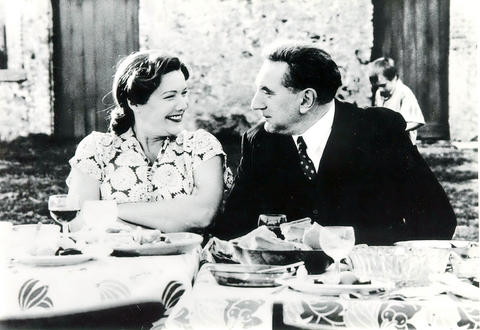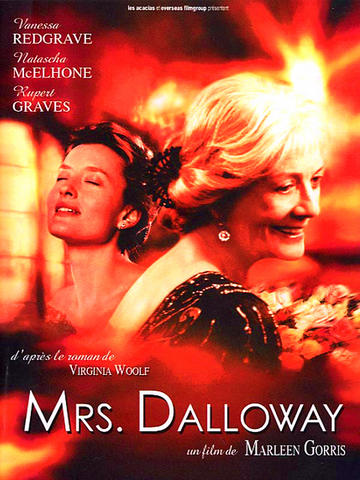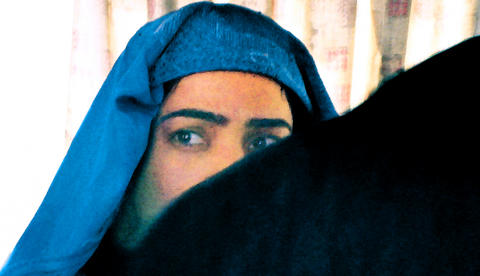Women Make Waves (臺灣國際女性影展, WMW) film festival is a well-established event on Taipei's cultural calendar. Now in its 14th year, it stands out against recent film festivals for its clear ideological focus. It is not, as its name may seem to imply, only for women; it presents many outstanding works that will appeal to anyone with an interest in cinema. It also contrasts with the predominantly male perspective that dominates feature films that fill screens at the cineplex.
This year's theme is Global Women in Action, a series of documentary films showing the achievements of women around the world in various endeavors. This can almost be taken as a companion piece to the recently concluded Taipei International Ethnographic Film Festival (台灣國際民族誌影展), which focused on the achievements of minority peoples.
Environmentalism has a place in this ideologically driven festival. In Blue Vinyl, Peabody Award-winning director, Judith Helfand, and co-director, Sundance Award-winner Daniel Gold, go in search of the truth about vinyl, the world's second largest selling plastic. In Texas Gold Carolyn Scott documents the battle Diane Wilson, a fourth-generation fisherwoman and mother of five, has with the giants of the petrochemical industry after discovering that the Texas county in which she lives had been named the most toxic place in America. Fanny Armstrong, director of McLibal, deals with the injustice of water politics in India and oil politics in Alaska. There is much more in the same vein, which powerfully establishes the thematic core of the festival.

The festival's opening film, the highly-regarded Enemies of Happiness, by Eva Mulvad, is likely to be popular, although its 59-minute running time will rule out any mainstream cinema release. The film tells the story of Malalai Joya, who campaigned to become a member of the Wolesi Jirga, or parliament, in Afghanistan - an unprecedented move for a woman.
Of interest, too, are the 15 films selected for Taiwan's Best. The section is a mixture of documentary and feature films, ranging from studies of Taiwanese society such as I Am in a Hand Puppet Troupe (我會演布袋戲) by Li Hsiu-mei (李秀美) and After Passing (穿過後) by academic Hu Tai-li (胡台麗) to light-hearted cinematic romps such as Spider Lilies (刺青) by Zero Chou (周美玲). Taiwan's best is a chance to see local films despite the absurdly short runs they get at mainstream cinemas.
The focus on director Guinevere Turner and the section of films under the heading Little Ball of Desire underscore the festival's feminist/LGBT credentials with shorts like Hung, in which five members of a lesbian clique try out penises for a day and the documentary Judith Butler: Philosophical Encounters of the Third Kind, an interview one of the world's foremost gender study theorists.

WMW also has mainstream fair to offer, such as the Singaporean film which closes the festival, Singapore Dreaming by Colin Goh. This movie explores family life in the high-pressure city-state. Mrs Dalloway and Antonia's Line, by the Filmmakers in Focus director Marleen Gorris also fall into this category.
A plethora of activities are related to the film festival. A seminar with Malory Graham, head of the Reel Grrls Video Workshop is scheduled for Sunday at 1:30pm; an International Forum on Women in TV and Film Industry will be held Tuesday at 10:30pm. Both will be at the Chinese Culture University's School of Continuing Education located at 231, Jianguo S Rd Sec 2, Taipei (台北市建國南路二段231號).

PHOTO: COURTESY OF WMW

May 18 to May 24 Pastor Yang Hsu’s (楊煦) congregation was shocked upon seeing the land he chose to build his orphanage. It was surrounded by mountains on three sides, and the only way to access it was to cross a river by foot. The soil was poor due to runoff, and large rocks strewn across the plot prevented much from growing. In addition, there was no running water or electricity. But it was all Yang could afford. He and his Indigenous Atayal wife Lin Feng-ying (林鳳英) had already been caring for 24 orphans in their home, and they were in

On May 2, Chinese Nationalist Party (KMT) Chairman Eric Chu (朱立倫), at a meeting in support of Taipei city councilors at party headquarters, compared President William Lai (賴清德) to Hitler. Chu claimed that unlike any other democracy worldwide in history, no other leader was rooting out opposing parties like Lai and the Democratic Progressive Party (DPP). That his statements are wildly inaccurate was not the point. It was a rallying cry, not a history lesson. This was intentional to provoke the international diplomatic community into a response, which was promptly provided. Both the German and Israeli offices issued statements on Facebook

Even by the standards of Ukraine’s International Legion, which comprises volunteers from over 55 countries, Han has an unusual backstory. Born in Taichung, he grew up in Costa Rica — then one of Taiwan’s diplomatic allies — where a relative worked for the embassy. After attending an American international high school in San Jose, Costa Rica’s capital, Han — who prefers to use only his given name for OPSEC (operations security) reasons — moved to the US in his teens. He attended Penn State University before returning to Taiwan to work in the semiconductor industry in Kaohsiung, where he

Australia’s ABC last week published a piece on the recall campaign. The article emphasized the divisions in Taiwanese society and blamed the recall for worsening them. It quotes a supporter of the Taiwan People’s Party (TPP) as saying “I’m 43 years old, born and raised here, and I’ve never seen the country this divided in my entire life.” Apparently, as an adult, she slept through the post-election violence in 2000 and 2004 by the Chinese Nationalist Party (KMT), the veiled coup threats by the military when Chen Shui-bian (陳水扁) became president, the 2006 Red Shirt protests against him ginned up by